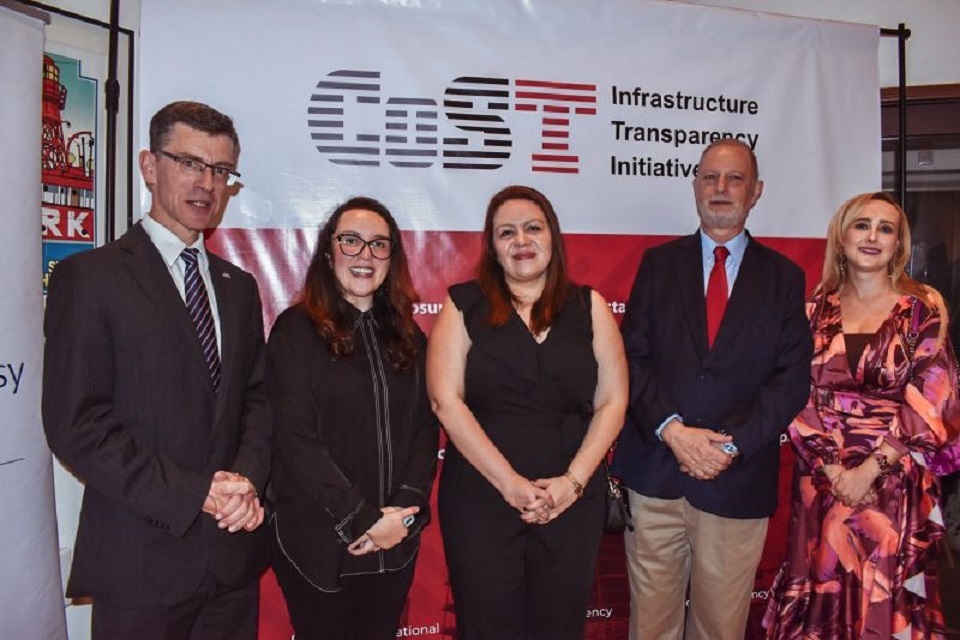Thank you AoC for inviting me to join you today.
I notice that a theme of this conference is a year of change.
So I’m excited to be part of a mission-led government that’s determined to create a new era of opportunity and economic growth.
To see a fairer society for everybody, where success is the reward for effort and enterprise, whatever your background.
And I know you share these ambitions.
Colleges are engines of opportunity, responsible for 38 per cent of disadvantaged young people progressing to higher education, and 68 per cent progressing to sustainable employment.
And Colleges are great at what they do. 86 per cent were judged good or outstanding in their most recent inspection.
So I’d like to thank you for all you do. I’m proud to be your minister in government.
Let me start by acknowledging the very real challenges you face.
One in eight young people not in education, training or work.
Nine million adults without basic English and maths skills.
We have one of the lowest rates of technical skills at level 4 or 5 in the OECD.
And in spite of your dedication and commitment, many learners often feel sidelined.
Employers feel the system is fragmented.
Providers spend more time competing over funding pots than meeting the challenges of the future.
We know we must take steps to fix the foundations of our skills system.
That is why the Budget last month recognised and valued further education.
Committing £300m of additional funding for the FE sector.
£950m of capital skills investment, including £300m for the capital estate.
£40m for the Growth and Skills Levy, to help take the first steps towards more flexibility in apprenticeships.
I can also confirm that there will be funding for the public sector – including colleges – to support them with the additional cost of changes to employers’ National Insurance Contributions.
But we must go further.
That is why I intend to set out how, with your help, we can reverse the decline of the past 14 years.
Today I am reiterating our manifesto commitment to bring forward a comprehensive strategy for post-16 education and skills.
Of course, there have been plenty of previous attempts to improve the skills system.
You would be well within your rights to ask “what will be different this time”?
Well, I think there are three key differences in our approach.
First, we are a mission-led government.
The focus is on driving growth and opportunity. But also fixing our NHS. Creating clean energy. Ensuring safer streets.
These are long-term missions to kick off a decade of national renewal.
And skills are essential to delivering them.
Second, this is not a government that imposes on you what we think is right.
Instead, I want to see the whole of society – businesses, trade unions, providers, and learners, come together to reimagine how we deliver skills.
Third, we need a whole cultural shift in our approach, where we recognise skills are part of a much wider ecosystem.
One linked with our industrial strategy. Our NHS. The green energy revolution. Devolution, and so on.
So we are setting up Skills England, which will work with the Industrial Strategy Council and the Migration Advisory Committee to identify the skills needed to drive economic growth.
We will set out our vision for the skills system shortly. But today, I want to set out three key differences between what has gone before, and what I want to work with you on to change the system in the future.
First, we need to go from a system where certain learners are ‘sidelined’, to one where everyone is supported.
Currently, too many young people do not have their personal circumstances or needs taken into account.
They might have caring responsibilities, health issues, or it could be down to mental health struggles or even a lack of confidence.
Or the many in further education with special educational needs and disabilities.
It is disheartening, but not surprising, that the number of young people aged 16 to 24 Not in Education, Employment or Training in June this year was up nearly 10%.
And this skills gap is not confined to the young. There are also many adults who are looking for new skills to progress in their current job or change to a new career path.
They rely on colleges to get them where they want to be in life.
We have already taken important steps on this.
We are working with DWP and HMT to publish a Get Britain Working white paper, explaining our ambition for an 80 per cent employment rate.
We are introducing a youth guarantee, which will provide tailored support to 18-21- year-olds who need it.
Helping more young people to make the most of local education, training and employment support and opportunities.
We will rejuvenate the careers system by creating a new jobs and careers service that will enable everyone to access good, meaningful work, and give them the support they need to progress in that work once they’ve got there.
And we have recommitted to introducing the Lifelong Learning Entitlement from January 2027.
Because we want a culture of lifelong learning – it should not stop at 18 or 21.
And – as you know – it is not just learners that have been sidelined, but colleges and FE teachers and the workforce too.
This government will treat colleges, teachers, technicians and the people that support students with respect.
That is why I am pleased to announce that, in addition to the funding package announced in the budget, I have today laid a Parliamentary Minute in the House introducing a Crown Guarantee for the Local Government Pension Scheme for the FE sector, mirroring the guarantee we already provide academies.
We estimate that the overall value of this guarantee to the sector is up to £30m, freeing up much needed funding to support our fantastic FE sector.
The second key change I want to see is to move from a fragmented skills system to a coherent one.
Skills shortages in this country doubled between 2017 and 2022, with a staggering 36% of all job vacancies caused by skills shortages.
We have had a decade of failure in assessing what our national skills needs are. And it’s not hard to see why.
Too many funding streams spread across different providers;
Employers pay half the amount per employee on skills training compared to other European countries and are often uncertain about the return on their investment;
Too many regulatory bodies with overlapping responsibilities;
And all that’s before you even start on the number of different learning programmes.
Leaving many learners confused as to how to progress through the system.
How a Higher Technical Qualification can support them into the career they want, or on to further study.
Or how a T Level can help them secure a higher apprenticeship.
So we will bring together the currently fragmented system into a coherent one that learners, employers and providers alike can understand.
We have already started this by launching the independent Curriculum and Assessment Review, for ages 5 to 18.
We are consulting on its scope now and there is still time for you to comment. I urge you to do so if you haven’t already.
And in July, the Secretary of State for Education announced a review of Post-16 Qualifications and paused the planned defunding of a number of qualifications.
Because we need to ensure a range of high-quality qualifications alongside T Levels and A levels to meet the needs of learners and employers.
I would like to thank David [Hughes], the AoC, and all colleagues who have fed into this review.
We are also reforming the apprenticeship levy into a new, more flexible Growth and Skills Levy, giving employers confidence to invest in skills.
The third key area of change is to move from a competitive system to a coordinated one.
I have heard, loud and clear, that the current hands-off approach to the skills provider market has failed.
It has meant providers have spent more time competing over shrinking pots of money, and dealing with reporting burdens.
Rather than doing what you do best – providing the education and training that people need to thrive.
It has meant mixed signals on priorities for providers – with too many government agencies trying to set the agenda.
That is why as Skills Minister I am thrilled that one of the first pieces of major legislation relates to the introduction of Skills England.
Skills England is part of a shift to consider the system as a whole, with greater coordination to stimulate growth.
It will focus on understanding the skills needed to deliver the long-term industrial strategy and helping providers, policy makers, and combined authorities respond.
It will be fully operational as an arm’s length body next year.
My vision is for a framework of local coordination between providers, responding to local skills needs, informed by national skills priorities.
By bringing together local skills improvement plans with local growth plans.
And linking these with the sectoral national workforce plans set out by the industrial strategy.
With employer representative bodies and other local stakeholders closely involved in the design and delivery of skills programmes.
We know that colleges have a key role to play here.
Like Harlow College, where employers and stakeholders’ contributions mean that courses contain the knowledge and skills needed in the local economy.
And with a central role for specialist Technical Excellence Colleges.
These will be FE colleges that work a wide range of skills partners to provide young people and adults with better opportunities and the highly trained workforce that local economies need.
That is not to say there will be no competition at all in the skills system.
Rightly targeted, healthy competition, with well-defined incentives can drive better results for our young people.
Underpinned by a clear system of accountability, improvement and intervention.
Higher education is a core part of our skills agenda and we are clear that we need a new approach to higher education.
We expect our higher education providers to play a stronger role in expanding access and improving outcomes for disadvantaged students.
To make a stronger contribution to economic growth.
To play a greater civic role in their communities.
To improve value for money as part of a more sustainable funding model.
And to raise the bar further on teaching standards.
We also want to improve pathways for students to move between further and higher education. We know we need much closer collaboration between FE and HE providers if we are to achieve this.
That is why we are pressing ahead with the rollout of the Lifelong Learning Entitlement, which we know will play a central role in facilitating greater collaboration.
And in the coming months we will be working in partnership with the FE and HE sector to deliver against the priorities I have set out.
Today, I have set out what I see as the three overarching changes we need for a stronger skills system.
A skills system that drives forward our long-term government missions. Delivering growth for the economy. Break down barriers to opportunity for individuals.
Changes that mean the least advantaged learners aren’t sidelined, but supported.
Changes that turn our fragmented skills system into a coherent one.
Changes that move us from unproductive competition, to coordinated delivery for learners and our communities.
To deliver this, I want to start a national conversation on skills, in which everyone will have their say… and for you to feel this is being done with you, not to you.
Because we all have a role to play – in development, as well as implementation.
Frankly, it is going to take a superhuman effort on all parts to reverse 14 years of systemic decline.
But I have seen the difference good government can make.
Together I know we can do it.
Thank You.






